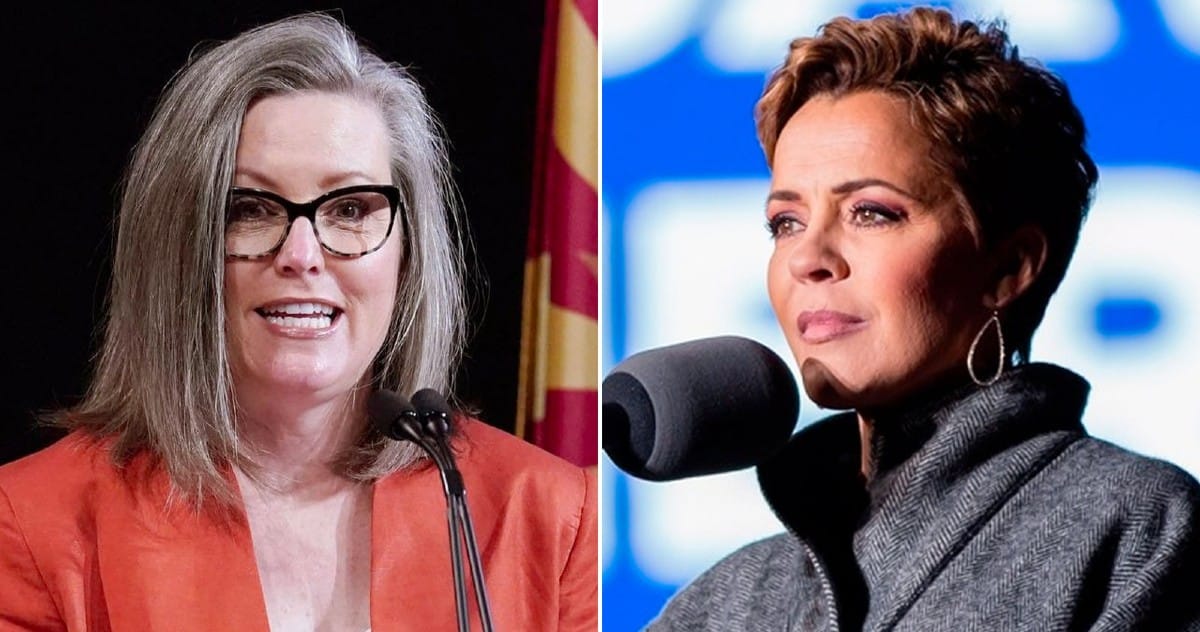OPINION: This article may contain commentary which reflects the author's opinion.
A showdown of sorts may be brewing in the battleground state of Arizona ahead of next year’s elections involving a battle between a Republican state senator and the Democratic governor.
On Monday, Sen. Sonny Borrelli made a claim that a non-binding resolution prohibiting Arizona counties from using ballot-counting machines overrides state law, an assertion was promptly refuted by elections officials, the state’s attorney general, and county leaders, who dismissed the claim as unfounded, the Arizona Mirror reported.
“Senate Majority Leader Sonny Borrelli penned a letter to all 15 Arizona counties on Monday, telling them that they were barred from using any machines to administer future elections,” the report continued. “He claimed that the legislature’s recent approval of Senate Concurrent Resolution 1037 was binding under a radical interpretation of a constitutional provision that would effectively allow state legislatures to do whatever they want with elections.”
At the heart of the “plenary powers” theory lies the notion that legislatures possess the authority to modify election rules and administration at their discretion, without any oversight or constraints from the judicial or executive branches. The perspective suggests that there are no checks or balances to limit the legislature’s ability to make changes to election processes.
“In this case, Borrelli claimed that, even though Gov. Katie Hobbs vetoed actual legislation that would have changed state law to ban all election machines used in Arizona, a change in the law isn’t needed to bar those machines because of SCR1037,” the report noted further.
The resolution primarily serves as an expression of the legislature’s opinion on the matter and does not possess the force of law. It states that voting equipment is deemed critical infrastructure and advocates for it to be “open source” and exclusively manufactured within the United States. The resolution also prohibits the use of certain designated machines in the state and explicitly forbids the utilization of any electronic equipment for tabulating, voting, or recording vote totals, the outlet continued.
State and county leaders vehemently criticized the notion that the resolution could supersede Arizona’s explicit state law, which permits the use of machines in elections while imposing stringent regulations on their usage and specifications.
“Senate Concurrent Resolution 1037, which expresses a desire to restrict the use of certain electronic voting machines, is non-binding and does not have the force of law,” Secretary of State Adrian Fontes said in a statement on Twitter. “If those requirements or certification process were to be changed, it would require a regular bill to be passed by the legislature and signed by the governor—which is not the case for this non-binding resolution. We defer to the AG’s office on all other legal questions.”
The resolution aims to bypass the comprehensive process established by Arizona law, which mandates that election equipment undergo certification by both state and federal authorities, with specific requirements at each stage.
“The attorney general agrees with (Fontes’) legal assessment on the matter,” Richie Taylor, spokesperson for Democratic Attorney General Kris Mayes, told the Arizona Mirror. “The SCR is non-binding and has no legal impact. We have not formulated any official opinion on the senator’s letter.”
Borrelli’s letter asserts that the authority to enact such election changes lies with state legislators, citing Article 1, Section 4, Clause 1 of the U.S. Constitution. The legal theory, centered around the concept of state legislatures and their “plenary power,” has gained traction among certain factions on the right and has been advocated by attorneys like John Eastman, the Arizona Mirror noted.
“Eastman was one of former President Donald Trump’s lawyers who, in the days leading up to the Jan. 6 riot, lobbied the legal counsel for former Vice President Mike Pence to overturn the results of the election using ‘plenary authorities,'” the outlet added.
